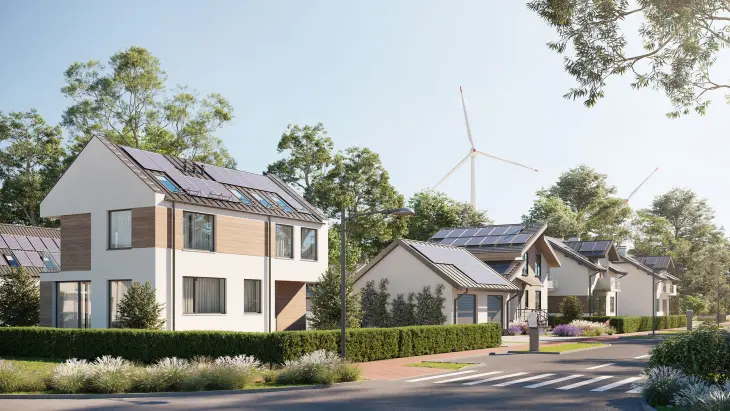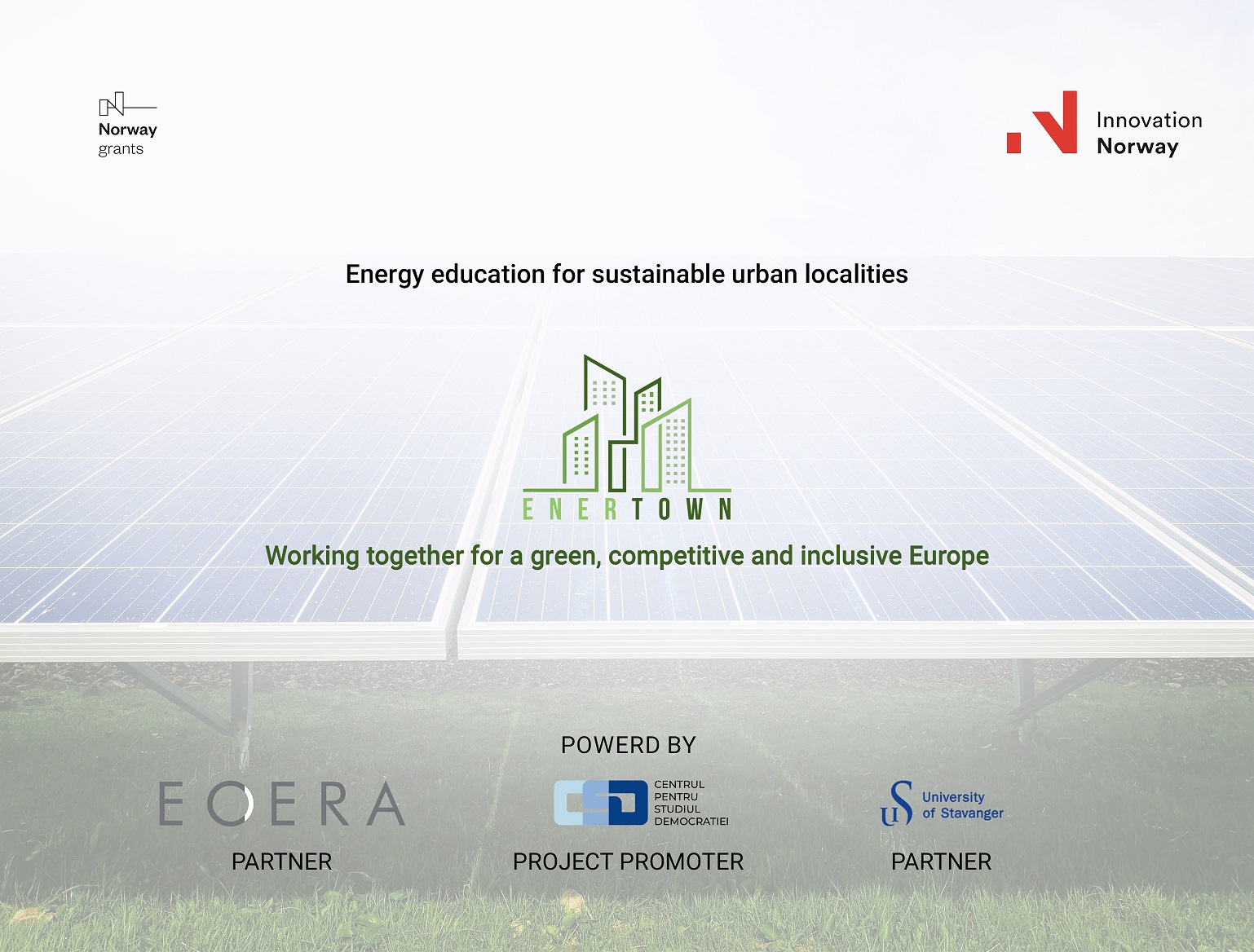Small towns and cities are less prepared to deal with the many changes and challenges of the energy transition. This is why they need to be better prepared and more adaptable to navigate this process. In this context, the project “Energy Education for Sustainable Urban Municipalities – ENERTOWN”, funded by Innovation Norway, supports several small urban municipalities in Romania to strengthen their understanding and skills in renewable energy, energy efficiency and sustainable energy security solutions for the benefit of their citizens. As part of the project, representatives of these local communities will visit Norway, one of Europe’s leaders in sustainability, in October to exchange best practices.
The ENERTOWN project started in April 2023 and is carried out by the Centre for the Study of Democracy (CSD), the initiator of the Romanian Observatory on Energy Poverty (ORSE), in partnership with the University of Stavanger in Norway, together with ECERA – a non-governmental organisation with expertise in the area of energy and environmental policies – and Servelect – a company with expertise in energy management in several small urban areas. The project aims to increase, through tailor-made training programmes, the knowledge and build skills of public authorities, private entities active in the energy market and civil society organisations to find solutions to energy problems affecting the quality of life in small urban localities in Romania. ENERTOWN takes place in four urban localities in Cluj county: Huedin, Gherla, Turda and Câmpia Turzii, with the aim of transferring the experience gained here to other localities in Romania.
“Small urban communities in Romania face specific challenges that make it more difficult for them to navigate this energy transition process. Small towns cannot navigate this journey alone. Their local budget revenues, their capacity to invest and attract European funding, their power to access projects and produce initiatives and solutions are low. In general, they are places with rather poor economies, and local civil society organisations do not usually have the necessary strength to generate ideas and connect with larger cities or across borders. This is why small towns should not be neglected, but supported as much as possible, in order to really have a just transition in Romania,” said George Jiglău, president of the Centre for the Study of Democracy.
The visit to Norway will take place from 23-27 October, with the exchange of best practices facilitated by project partners from the University of Stavanger. Alongside members of the project team, the visit will bring together key actors for the sustainable transformation of these small urban communities: participants from local government, NGOs, business and schools, including representatives of student councils. They will visit Norwegian local communities similar in size to those in Romania and will have the opportunity to interact with representatives from local government, civil society, local business and education to discuss the challenges of the energy transition in small urban areas and explore solutions that could be implemented in Romania.
For example, it will look at how Norwegian local communities manage to set up joint projects (neighbourhoods, neighbourhoods, etc.) to attract funding and improve energy consumption conditions in the residential environment. It will also look at how communities are building energy communities, how capacity to implement new energy technologies is being developed, and how the transition from traditional energy resources to renewables has been made. Last but not least, the extent to which vulnerable consumer groups are integrated into these communities and what solutions exist for them will be analysed.
As part of the project, workshops were held in September in all four ENERTOWN project cities on topics related to locally adapted energy policies in the broader context of energy transition and climate change. The activities were supported by experts from the Centre for the Study of Democracy (ACSD), ECERA, together with partners from Servelect in Cluj-Napoca. The workshops were attended by representatives of local authorities, members of local civil society, representatives of educational institutions, including representatives of the Student Council. These workshops laid the foundations for further collaboration, which will ensure the sustainability component of the project beyond its formal completion.
Also, as part of the exchange of best practices, in June a delegation from the University of Stavanger and members of the project team visited the town halls of Gherla and Huedin, where they met with representatives of the local administration. The ENERTOWN project also provides an opportunity for parallel research to be carried out by ORSE experts on energy poverty in small towns.
The project “Energy education for sustainable urban localities – ENERTOWN” is funded by Innovation Norway through the Norwegian Grants 2014 – 2021 (https://www.innovasjonnorge.no, Working together for a green, competitive and inclusive Europe), through the programme “Energy Programme in Romania”, with a funding of €195,774 and a grant value of €174,696. More information about the project can be found on the dedicated website.

